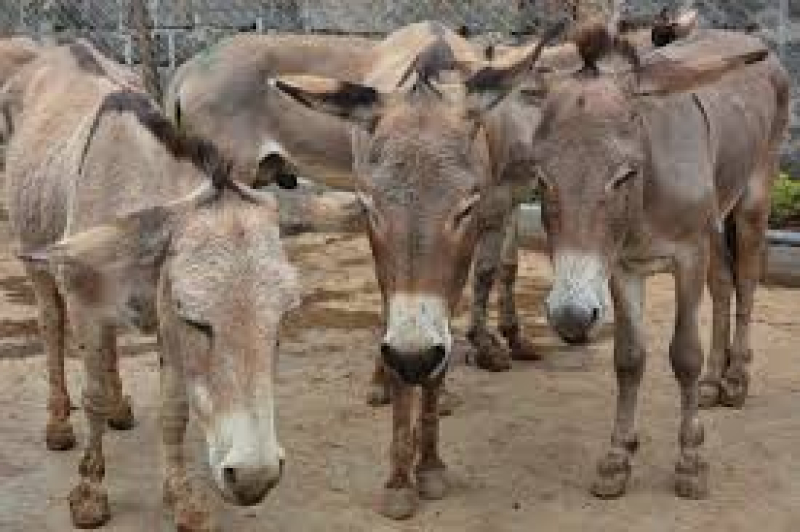- Nation Votes Tomorrow in 13th Poll, Referendum |
- Key in your hands, use it wisely: Prof Yunus tells voters |
- Yunus Urges Voters to Shape a ‘New Bangladesh’ |
- Bangladesh Polls: Campaign Ends as Voters Weigh Pledges |
- Bangladesh Heads to First Gen Z-Driven Competitive Poll |
'Brutal' donkey skin trade banned in 55 countries

Animal welfare charities have welcomed an Africa-wide ban on the controversial donkey skin trade.
It will make it illegal to slaughter donkeys for their skin in 55 countries across the continent.
Demand for the animals' skins is fuelled by the popularity of an ancient Chinese medicine called Ejiao, traditionally made from donkey hides.
African state leaders approved the ban at the conclusion of the African Union summit in Ethiopia on Sunday, reports BBC.
The charity, the Donkey Sanctuary, called the the trade "brutal and unsustainable" and said it had decimated donkey populations around the world, particularly in Africa and South America.
Ejiao is believed by some to have anti-ageing and health benefits, although this is unproven. Chinese companies that make it used to use skins from donkeys sourced in China. But when the numbers of the animals in the country plummeted, they looked overseas.
"At first our governments saw this as an opportunity, and many legal slaughterhouses opened in Africa," explained Dr Solomon Onyango from the Donkey Sanctuary in Kenya.
"But, [here in Kenya], between 2016 and 2019, about half of our donkeys were killed for the trade," he said.
Dr Onyango told BBC News that the ban would "go a long way to safeguarding donkeys and the livelihoods of millions of people who rely on them".
About two-thirds of world's estimated population of 53 million donkeys are in Africa. People in the poorest, rural communities use them for transport and to carry water, food and other goods.
One recent study in Ethiopia - that set out to measure the economic value of donkeys - showed that owning one could mean the difference between destitution and a modest livelihood.
Raphael Kinoti, who is regional director of the animal welfare charity The Brooke in East Africa said this was a "terrific moment for communities in Africa who have benefitted from donkeys since time immemorial".
"Donkey slaughter for its skin has eroded livelihoods in Africa, robbing the continent of its culture, biodiversity and identity," he said.
"We urge all AU members to uphold the decision for the good of all."

